Drying for Success: Sunify Solardry Technology
As Ghana’s Independence Day comes around, the country continues to embrace innovation and entrepreneurship as important drivers of economic growth. In the agricultural sector, one start-up is leading the charge in tackling one of Ghana’s most persistent challenges—post-harvest losses. Sunify Solardry Technology, a Kosmos Innovation Center-supported agribusiness, is transforming how farmers dry and store grains, using a mobile, solar-powered solution that is helping to improve food security and increase incomes.
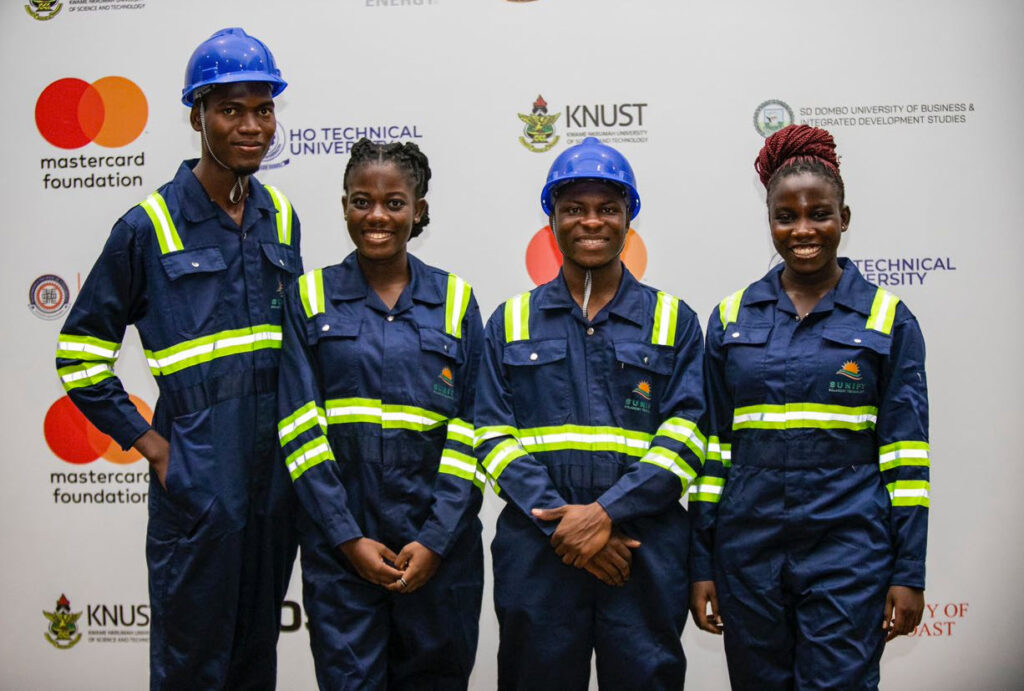
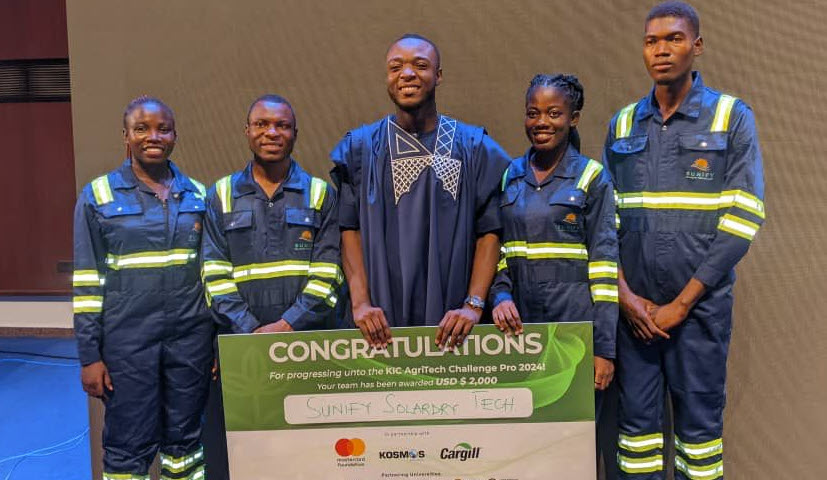
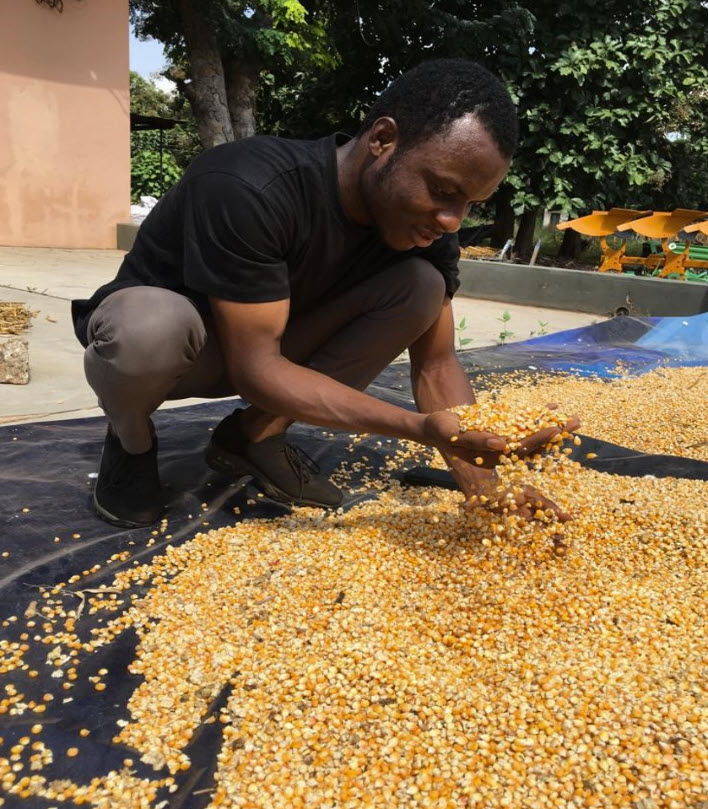
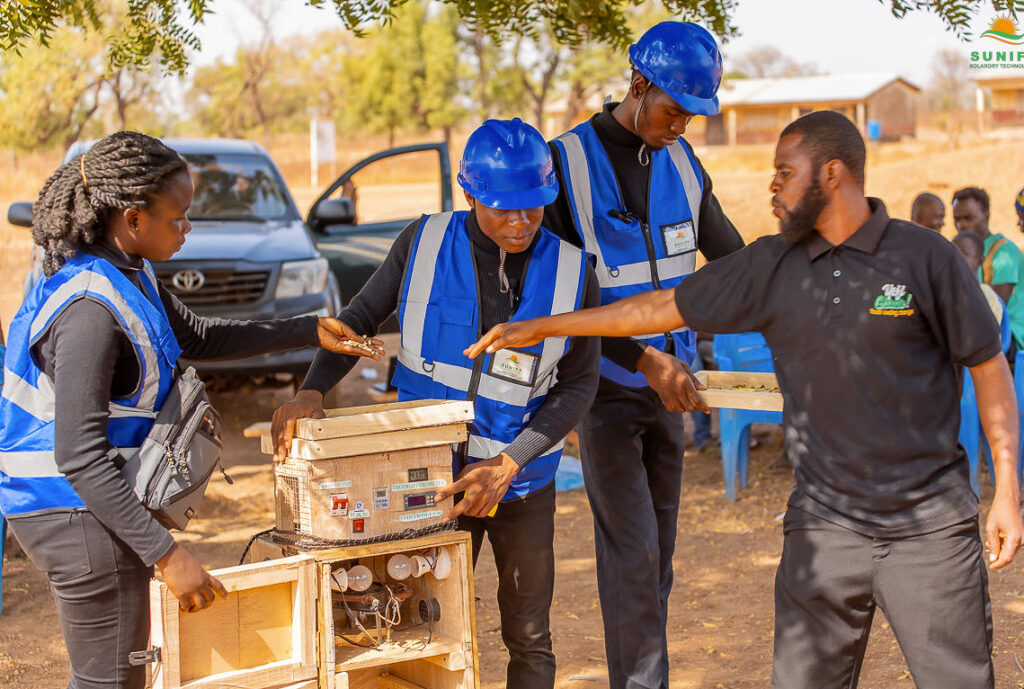
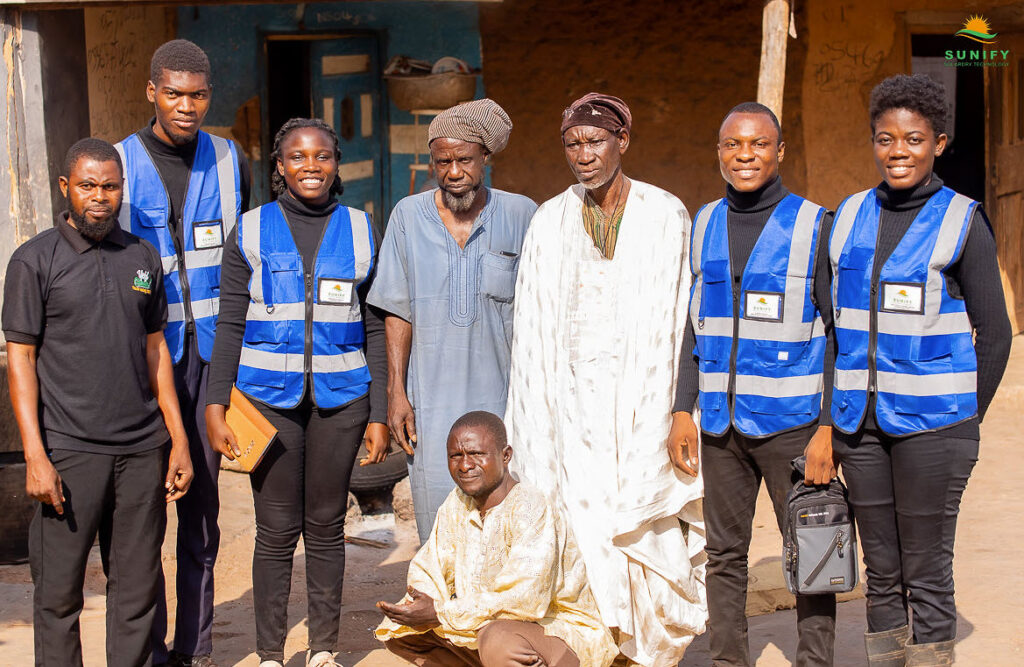
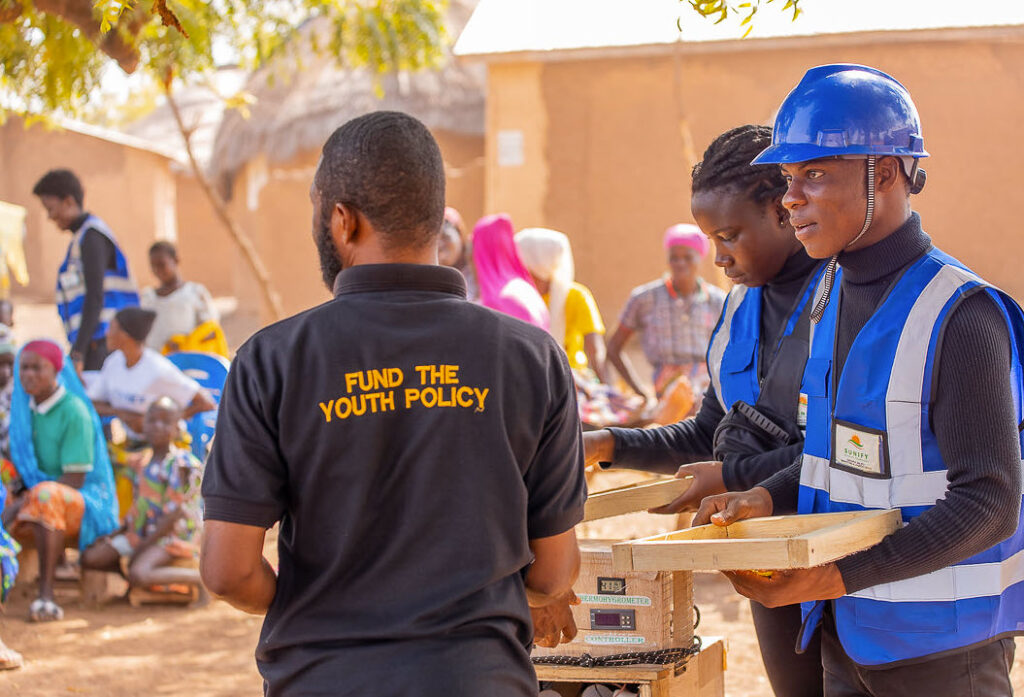
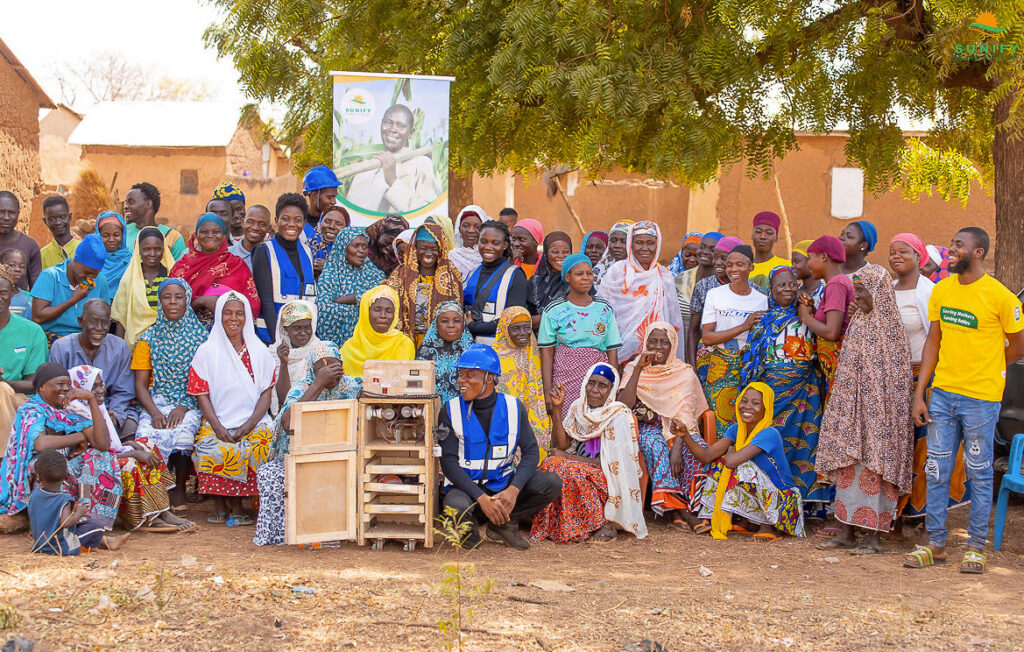
On the question of being a young business in Ghana, Sunifry Solardry founder Naa Ayeley Tagoe explains: “It matters to me that we are entrepreneurs in Ghana. It is quite difficult, especially in the early stages, you need the right solution to a problem, the right team and more importantly the right marketing strategy. Our motto is: let’s mechanize the sun to curb post-harvest losses.”
These post-harvest losses in Ghana are a significant issue, with between 10% and 30% of grains lost due to improper drying and storage. Aflatoxin contamination, caused by mold growth on inadequately dried grains, is another major concern, as it has been linked to serious health risks, including liver cancer and immune suppression. With agriculture employing over 60% of the population, these losses translate to substantial economic damage, limiting the ability of farmers to generate sustainable incomes.
The company was founded in April 2023 by a team of young entrepreneurs, including Naa and co-founders Zakaria Salifu, Vanessa Ivy Dodoo, and Paul Malik Abavana. The idea was born after they realised how much grain was being lost due to poor drying methods. “We went for a trip and realised that a lot of farmers as well as aggregators are facing challenges when it comes to grain preservation, especially during the drying period,” Naa explains. “In the rainy season, it’s difficult to dry grains because there’s no sunlight here in Ghana. Most farmers try to dry their grains with direct sunlight, which is quite unhealthy due to exposure to dust particles, rodents, animals, and insects.”
Traditional drying can take six days or more, during which grains remain vulnerable to spoilage. Sunify’s mobile solar-powered mechanical dryers reduce this time to just four or five hours, while also ensuring that the grains are dried evenly and safely. “Our machine is going to regulate moisture, temperature as well as the time in which these grains are going to be dry,” Naa explains. “It depends on the type of grain, the moisture content, and the quantity. This ensures that farmers don’t just dry their grains faster, but that they maintain a high-quality product that sells for more.”
By significantly reducing drying time and preventing contamination, Sunify is helping to cut post-harvest losses by over 50%, improving food security and economic stability for smallholder farmers. The technology is clean, efficient, and affordable, designed to be used by those who often struggle to access modern agricultural tools.
Sunify operates using a community-based approach, where groups of farmers share access to the drying machines. This makes it more cost-effective and ensures that even those with limited resources can benefit from the technology. By reducing post-harvest losses, Sunify is directly helping farmers increase their earnings, improving food security, and reducing waste in Ghana’s agricultural supply chain.
Naa credits much of Sunify’s success to the Kosmos Innovation Center. Through its AgriTech Challenge and incubation programs, KIC has provided the team with mentorship, funding, and technical training, helping them refine their business model and scale their operations. What surprised her most about Kosmos Innovation Center was the duration of the program. “It was approximately one year and I didn’t understand why it should take such a long time to complete,” she laughs. “But eventually I realised that it really helped because during that period we went through a lot of training, capacity building, and we were given tasks that, on a normal day, we wouldn’t have done. Every step led to the next step, so it made it quite interesting and we learned a lot.”
The role of women in agribusiness has also been central to Sunify’s mission. Women are often the ones responsible for drying and storing grains, yet they have less access to modern technology and resources. Sunify is working to change that by ensuring that women farmers are included in their drying programs, giving them the tools and knowledge to improve their productivity and income.
Looking ahead, the team is aware of the challenges that come with innovation. More businesses and investors are recognising the potential of solar-powered drying solutions, increasing competition in the market. “A lot of people have realised that this is actually a good space to invest in,” Naa says. “Due to this, we are looking at ways to enhance our technology as well as reduce exposure of our technology to competitors.”
Ghana’s agricultural sector is at a turning point. As the country continues to invest in technological advancements and entrepreneurship, companies like Sunify Solardry Technology are setting an example of what is possible when innovation meets necessity. With the support of the Kosmos Innovation Center and the dedication of its founders, Sunify is not just reducing post-harvest losses—it is helping to shape a more sustainable and prosperous future for farmers across Ghana.
